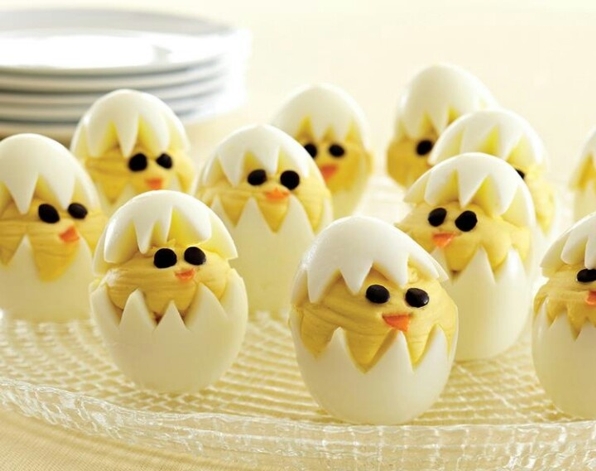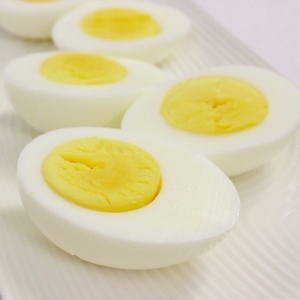One of the most demanding things I ever had to cook – before I went to culinary school – was a perfect Hard Boiled Egg. There is a foolproof way to do it, but I never knew until I was admitted to the world of professional cooks. And it’s so easy, you’ll wonder why you never thought of it yourself!
 Leave behind your old fears and loathings about Hard Boiled Eggs! Have fun with your food!
Leave behind your old fears and loathings about Hard Boiled Eggs! Have fun with your food!
I always hated making Egg Salad, or Potato Salad with Hard Boiled Eggs. Ditto, Deviled Eggs. I dreaded my Eggs turning out wrong. It was either cracked shells, or a dark ring around the Yolk, or they were under- or over-cooked.
What causes cracked shells?
It’s simply the thermal shock that occurs when you place cold Eggs (right out of the fridge) into boiling Water. So, if you like your current method for cooking Hard Boiled Eggs, just remember to take your eggs out of the fridge half an hour before cooking them. The risk of cracking the shells is much lower if they’re at room temperature when they hit the boiling water. But keep reading and see if my method for Hard Boiled Eggs isn’t even better…
What causes dark rings?
This one is a matter of chemistry. There is Sulfur in the Whites and Iron in the Yolks. When you overcook your eggs, a chemical reaction takes place where the two meet – on the outside of the Yolk. The result of the reaction, Iron Sulfide, shows up as a grey, black or green ring. I know it’s tempting to cook your Hard Boiled Eggs longer than they really should, to make sure they’re cooked hard all the way through. Just don’t overcook your eggs!
What causes rubbery Whites?
This, too, is a peril of overcooking your Hard Boiled Eggs. You’ll probably have dark rings, as above, too, when you have rubbery Whites…
So, give us the recipe, already!
Okay. Here it is:
First, bring your eggs to room temperature. Place the Eggs in a fairly large saucepan, and cover with plain cool tap water. Make sure you have at least an inch of water over the tops of the eggs.
Bring the pan to the boil.
As soon as it reaches the boil, remove the pan from the heat, cover, and wait 12 minutes.
After 12 minutes, drain the eggs in a colander and plunge into cold water to loosen the shells for easy peeling.
You’ll get perfect Hard Boiled Eggs every time!
Now you know…
…Just in time for the holidays!
~ Maggie J.

